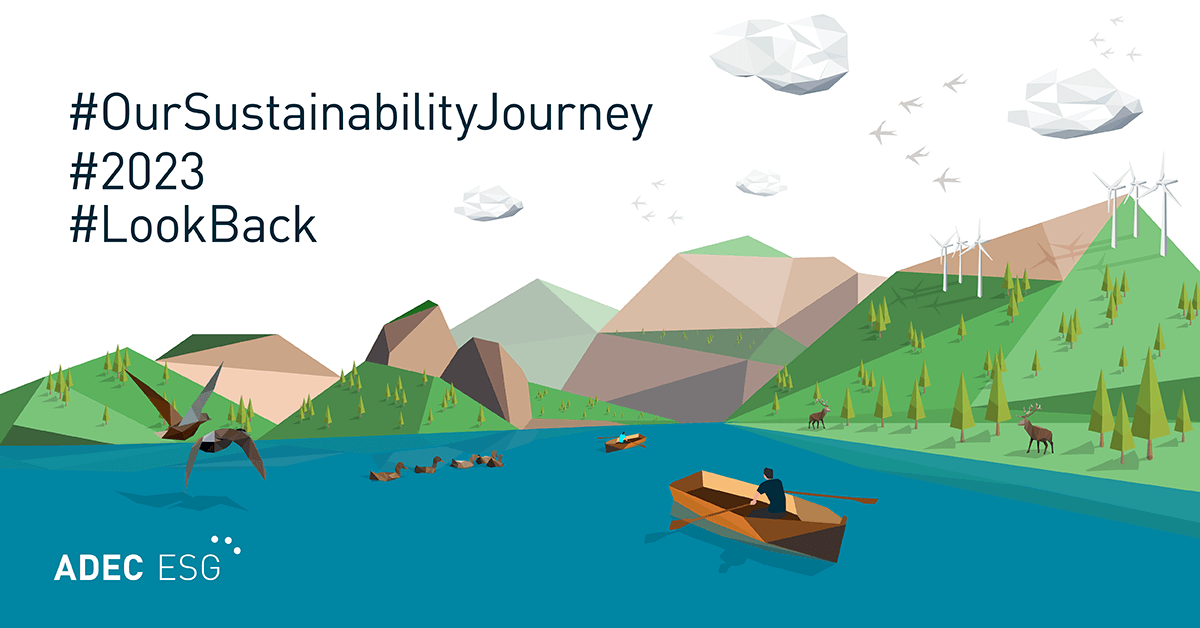Many organizations are endangered by the unprecedented environmental risks that the world is experiencing today. As the world’s industries are affected by drought, heat stress and flooding, organizations are taking the necessary steps to mitigate climate risks. Support for sustainability has increased among business communities, and many organizations acknowledge that improving their sustainability performance by monitoring their energy use, natural resource access, and waste management can have a substantial effect on improving their climate resilience.
An organization’s sustainability performance is disclosed through their annual corporate social responsibility (CSR) report. RobecoSAM’s 2014 Sustainability Yearbook identified CSR reports as the chief platform that companies utilize to publicize their gathering and analysis of the data needed to create resilience against environmental risks and social change. When confronted with various environmental risks, organizations turn to CSR reporting to communicate sustainable values to their stakeholders in an effort to secure support for sustainable economic success. CSR reporting offers the basis for businesses to understand their own environmental risks and the new opportunities they present.
Over the years, the drive to improve sustainability performance has prompted organizations to meet their stakeholders’ expectations and disclose more comprehensively in their CSR reports. Standardization efforts on the disclosure of environmental, social and governance (ESG) data in CSR reports have also improved through sustainability rankings. According to GMI Ratings, the use of ESG data and sustainability rankings provides objective benchmarks for evaluating an organization’s CSR portfolio. In addition, sustainability rankings equip an organization with a baseline from which they can make appropriate adjustments to improve their overall corporate governance, in hopes of ranking in various sustainability indices in the future.
Here are several examples of globally recognized sustainability indices:
1. Green Rankings of Newsweek
Newsweek’s Green Rankings delivers an in-depth corporate profile assessment of the environmental impact, management and disclosure of the largest 500 companies in the US and the world. Organizations are scored based on their performance in relation to eight specific indicators. Results are based on the data provided by Corporate Knights Capital with the help of a high-level panel of advisors on the Green Rankings advisory council.
2. Global 100 Index of Corporate Knights Capital
The Global 100 Index by Corporate Knights Capital is an annual index of the 100 most transparent and sustainable companies around the world. The Global 100 Index has 12 key performance indicators used to correctly rank the companies that have made their short list, and a rule-based construction methodology, which makes their KPIs quantitative and clearly defined, and their results objective and replicable.
3. Dow Jones Sustainability Index
The Dow Jones Sustainability Index (DJSI) is the world’s first global sustainability benchmark. They use a best-in-class approach to measure the sustainability performance of the world’s top companies based on a comprehensive assessment involving long-term economic, environmental and social criteria, both general and industry-specific.
4. FTSE4Good Index Series
FTSE4Good Index Series has sustainability indices for both Europe (FTSE4Good Environmental Leaders Europe 40 Index) and companies around the world (FTSE4Good ESG Ratings). It was designed to be used by shareholders and potential investors for benchmarking retail and institutional investment products so that they may invest in companies that have the best sustainable business practices.
5. Climate Performance Leadership Index (CPLI) of CDP
CDP is an international non-profit organization that helps companies and cities disclose, measure and manage vital environmental information. It has its own sustainability ranking called the CDP Climate Performance Leadership Index (CPLI), which examines the carbon reduction activities of the world’s largest corporations. With the CPLI, CDP provides data for investors who want to know more about sustainable programs and practices, and about the companies that implement them.
With experience providing sustainability solutions to a wide range of industries, ADEC ESG discusses environmental risks and opportunities to help organizations improve their ESG performance. Our team helps organizations increase their chance of being included in sustainability indices by identifying climate risks and opportunities to bolster a firm’s sustainability program.
For more information or to request a consultation, contact us today.




